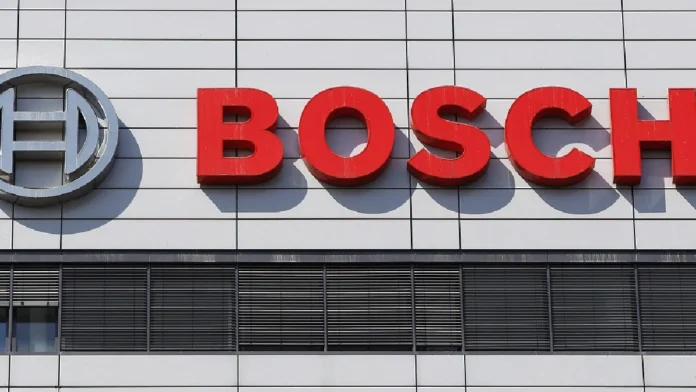German car parts giant Bosch has announced plans to slash 5,000 jobs, with 3,800 positions to be cut in Germany. The move, aimed at reducing costs and adapting to a rapidly changing automotive landscape, reflects the challenges facing the industry amid the transition to electric vehicles (EVs) and stagnating global vehicle production.
Major Job Cuts in Germany and Beyond
A Bosch spokeswoman confirmed that 3,800 of the planned layoffs would take place in Germany. The exact details of these job reductions are yet to be finalized and will be subject to discussions with workers’ representatives.
In addition to these cuts, Bosch revealed plans to eliminate up to 1,300 positions between 2027 and 2030 in its steering systems division, based in Swäbisch Gmünd, Baden-Württemberg. The company previously announced in December 2023 its intent to lay off 1,500 workers as part of ongoing restructuring efforts.

Challenges in the Automotive Sector
The layoffs come as Bosch and other German manufacturers grapple with a shrinking market for traditional automotive components. The transition to electric vehicles requires significantly fewer parts and involves less labor-intensive production processes. Bosch manager Stephan Hölzl emphasized the need for structural changes to remain competitive.
“We must adapt our structures to the changing market environment and reduce costs sustainably to strengthen our competitiveness,” Hölzl said.
Bosch also cited global vehicle production stagnation as a contributing factor, projecting production to remain at 93 million units this year, with a potential slight decline compared to the previous year.
Workers Push Back Against Layoffs
The job cuts have sparked strong opposition from employee representatives. Frank Sell, head of the workers’ council for Bosch’s automotive division in Germany, criticized the move, describing it as a “slap in the face” for workers and promising to resist the layoffs.
Sell and other workers’ representatives argue that the company’s restructuring disproportionately affects employees, while Bosch continues to invest in new technologies and innovation.

Adapting to a Shifting Industry
Bosch is not alone in facing the challenges of a transforming automotive industry. The shift toward EVs has disrupted traditional manufacturing, reducing the need for many components used in internal combustion engine vehicles.
The company is making significant investments in new technologies to align with the evolving market. While these efforts aim to position Bosch for long-term success, they also highlight the immediate pressures of reducing operational costs and optimizing efficiency.
Broader Impact on German Industry
Bosch’s announcement comes against the backdrop of broader struggles within Germany’s industrial sector. Major manufacturers, including Volkswagen, have also unveiled plans to cut costs and restructure operations. Volkswagen recently announced a 10% reduction in employee pay, the closure of at least three factories, and layoffs affecting thousands of workers. Similarly, Ford has planned to cut 4,800 jobs in Europe, with Germany bearing a significant share of these reductions.
Germany’s industrial base faces compounded challenges, including high energy costs, geopolitical tensions, and the rising competitiveness of Asian manufacturers. A recent study by the Federation of German Industries predicts that 20% of Germany’s industrial output could vanish by 2030 if systemic issues are not addressed.
Future Outlook
As Bosch moves forward with its restructuring plans, the company emphasizes the need to balance cost-cutting measures with investments in innovation. The transition to EVs and the broader transformation of the automotive sector will continue to shape the company’s trajectory.
For Germany, the developments at Bosch and other industrial giants underscore the urgent need for systemic reforms. Investments in infrastructure, research and development, and workforce adaptation are essential to maintain the country’s position as a global industrial leader.

